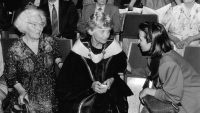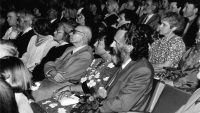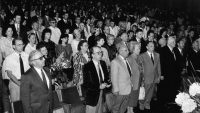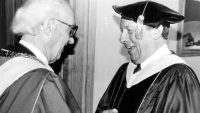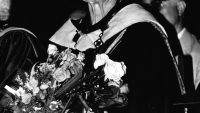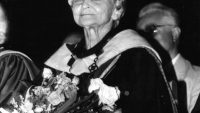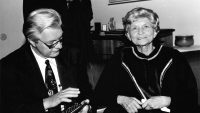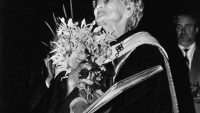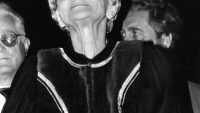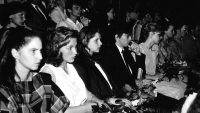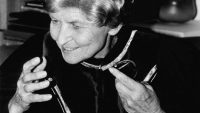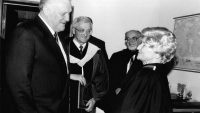Marija Gimbutienė
Garbės daktaras / Honorary Doctor (Suteiktas vardas 1993-01-27)
Professor Marija Gimbutas (1921–1994), an archaeologist, anthropologist, and a pioneer in archaeomythology, who introduced courses in Lithuanian Language, Baltic Languages and Cultures, and Baltic and Slavic Mythology at the University of California, Los Angeles and established the Lithuanian Folk Art Department at the university’s Museum of Cultural History, was awarded VMU honorary doctorate regalia in 1993. Professor Gimbutas frequently visited Lithuania, delivered lectures, and contributed to both the diaspora and Lithuanian periodical press.
Marija Gimbutas was born on 23 January 1921 in Vilnius. Ten years later, she moved with her parents to Kaunas, where she started her education at the “Aušra” Girls’ Gymnasium. In 1938, she enrolled at the Faculty of Humanities of Vytautas Magnus University. In 1942, she completed her studies in archaeology at Vilnius University. Like many intellectuals during the Second World War, she left Lithuania for Germany. There, in 1946, she defended her Ph.D. dissertation at the University of Tübingen. After moving to the USA, she worked at Harvard University from 1950 to 1963, and then at the University of California from 1963, where she was granted the title of professor in 1964.
From 1967 to 1980, Professor Gimbutas led archaeological excavations in Bosnia, Macedonia, Greece, and Italy. She contributed to various archaeological publications and encyclopedias, including the “Lithuanian Encyclopedia” (1953–1964), “Encyclopaedia Britannica”, and “The Encyclopedia of Religion” (1986–1987). She participated in over 30 international scientific conferences. Her main area of research was post-Paleolithic Europe. In her book “The Civilization of the Goddess: The World of Old Europe” (1991), which won the Anisfield-Wolf Book Award, an award granted in the USA for the most outstanding research on the history of world culture, and in her other works, she explored the structure, development, religion, and script of Old Europe (7000 to 2500 BCE), describing an agricultural society in which a matrilineal community was eventually replaced by a patrilineal one, and in which religion was considered the religion of the woman-goddess, and posited a hypothesis of a merger between the cultures of ancient Europe and the Eurasian steppes. She authored a total of 23 books, some of which were published in English, Italian, Japanese, Lithuanian, Portuguese, Romanian, Hungarian, and German.
Marija Gimbutas died on 2 February 1994 in Los Angeles. She was reburied on 8 May 1994 in the Petrašiūnai Cemetery in Kaunas, Lithuania.
Based on information provided by VMU Library.
Speech by Professor Marija Gimbutas at the honorary doctorate award ceremony at VMU on 11 June 1993.
Photos by Vladas Urbonas





